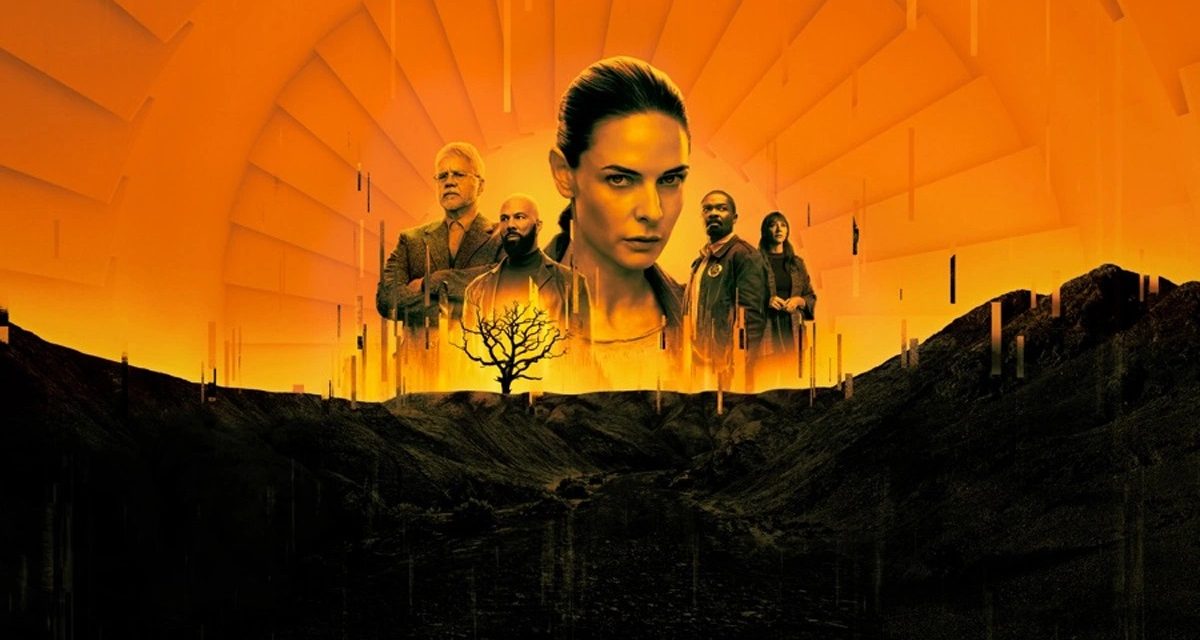Silo, the sci-fi series available exclusively on Apple TV, has wrapped the first season to a generally positive response, with an 88% rating on Rotten Tomatoes at the time of writing. Starring Rebecca Ferguson (Mission Impossible / Dune) as the main lead, Juliette Nichols, and roles from Tim Robbins, Common, Avi Nash, and more.
Silo is a captivating and thought-provoking exploration of a dystopian future based on Huge Howey’s excellent first book in his series, Wool. As the series went on, if you’ve read the book, it becomes apparent that the filmmakers, while generally keeping true to the plot, have switched up a few things, and it seems for the better.
Set in a world where the last of humanity has been forced to live underground in a self-sustaining silo with a toxic world outside, the show weaves together intricate narratives of survival, mystery, and rebellion. With its rich world-building, compelling characters, and constant sense of tension, Silo takes viewers on a thrilling and immersive journey.
One of Silo’s strongest aspects is its intricate and multifaceted plotlines. As the story unfolds, we are introduced to a diverse cast of characters who struggle with the constraints and secrets of their environment. The series effectively builds suspense and mystery, with each episode unveiling new layers of Silo’s complex history. The plotlines intertwine seamlessly, creating a web of intrigue that keeps viewers eagerly awaiting the next episode.
Silo excels in creating a vivid and immersive world. The production design is top-notch, with the underground silos exuding a gritty and claustrophobic atmosphere. The attention to detail in the sets and costumes is commendable, making it easy for the audience to suspend disbelief and fully immerse themselves in this post-apocalyptic world. The visual effects are equally impressive, particularly in showcasing the Silo’s massive underground infrastructure. The series perfectly balances the sterile, utilitarian environment of the silos and the natural world above ground, ravaged by an unknown catastrophe.
The character development in Silo is a highlight of the series. Each character feels distinct and fully realized, with their motivations, fears, and secrets. The protagonist, a young engineer embroiled in a conspiracy that threatens the delicate balance of the Silo, is relatable and easy to invest in. The supporting cast is equally compelling, featuring a mix of sympathetic allies and morally ambiguous figures. As the series progresses, the characters’ relationships deepen, and their struggles and sacrifices become increasingly profound, driving the show’s emotional core.
Beyond its gripping storyline, Silo also offers meaningful social commentary. The series raises thought-provoking questions about power, control, and the lengths humans will go to maintain societal order. It explores the tension between individual freedom and humanity’s collective survival while also addressing themes of class division, propaganda, and the consequences of unquestioned authority. Silo deftly weaves these themes into its narrative, making viewers reflect on the current state of our society and the potential dangers of complacency.
Silo is an impressive sci-fi series that excels in storytelling, world-building, and character development. With its captivating plotlines, visually stunning production design, and deep exploration of thought-provoking themes, the show keeps viewers engaged and invested from start to finish. It stands out among other dystopian series with its ability to balance thrilling suspense and insightful social commentary. If you’re a fan of sci-fi that challenges the status quo and leaves you pondering the state of our own world, Silo on Apple TV is a must-watch.




